I had tentatively planned to spend my next to last day in
Greece on or near the beach and involved in water-related activities in order
to beat the heat. Part of Lefkada’s appeal is that the temperatures there
forecast onine were supposed to be significantly below those on the mainland.
However, I did not really find that to be the case on the eastern side of the
island where I spent a good part of the previous day. As I was in Vasiliki, though, a young dude
with a British accent selling boat tours promoted one to me. My natural
reaction to anyone trying to sell me something is to brush him off. However, thinking about it for a few minutes,
I decided to return to see what he had to say.
His offer was a full day tour 10:00 A.M. to 6:30 P.M. with three stops
on three islands and multiple pass-by sights for 35 Euros. That seemed like
quite a deal and a way to see a lot more than I would be able to driving around
in my car. A day on a boat would also
help beat the heat.
My tour boat left from Nydri, a port town on the east side
of Lefkada.
Being Sunday, there were lots of Greek weekenders on it, enough
that the company was sailing two boats with identical itineraries. I made my
choice between them based on the lesser crowd on the one with what seemed like
slightly less plush facilities.
The first part of the itinerary involved sailing south and
then around Lefkada’s southern tip. I
didn’t realize Lefkada was such a jetsetter kind of a place, one of coves filled
with grand yachts and sailboats and hillsides covered with vacation villas. The
boat’s tour narrator identified one very large modern-looking box of a house as
Italian designer Giorgio Armani’s villa.
After rounding Lefkada’s southern cape with its famous
lighthouse, the boat continued some distance up Lefkada’s west coast. This was almost like going out into the ocean
because of the substantial swells I wouldn’t expect on the Mediterranean Sea in
summer. And here it finally was
cool. The Ionian Sea west of Greece is the
deepest part of the Mediterranean, as deep as 5,000 meters (16,000 feet), so it
naturally takes longer to warm up in summer than shallower areas of water.
On a
very hot day like this one, the hot air expanding over the cool water creates
fog, a similar phenomenon to that in California, and sure enough a fog bank
rolled in after the first very bright half our on the beach.
The Ionian Sea beaches are considered to be some of the
world’s most beautiful, and one on the west coast of Lefkada, Porto Katsiki
Beach, has received such an award. Porto
Katsiki can be reached by a long stairway from a parking lots above the cliffs.
Our boat was not permitted to moor there, though, so we just got to gawk at the
world’s most beautiful beach from offshore.
Instead we continued to Egremni Beach just to its north.
Egremni is not accessible from land and was gorgeously
deserted at the time my boat arrived. The
water was some of the most stunning blue I have ever seen. However, it didn’t
take long for three other tour boats to arrive as well, all four disgorging
perhaps a thousand tourists onto a short stretch of beach that briefly looked
like Coney Island backed by cliffs. Although beautiful, to me this was far from
an ideal beach.
It was pebbly rather than sandy and quite painful to walk on
without footwear. The beach dropped off
steeply too so the waves crashed close to shore rather than rolling in from a
distance, making it hard to get in and out of the water on a day with rather
rough surf. The crew dropped a staircase from the front of the boat to the
beach, but it was almost like a ladder and did not seem very safe. I suspect
that kind of thing wouldn’t be allowed in the U.S.
The next stop was south across the channel at a small
village named Fiscardo on the island of Cefallonia. Cefallonia is the largest
of the Ionian islands and is said to have 365 villages, one for each day of the
year. Most were largely destroyed in the Great Cefallonian Earthquake of 1953
and rebuilt in modern style. After the earthquake, more than a third of
Cefallonia’s population left the islands. Fiscardo is the sole one that
survived mostly intact. It has pretty buildings serving tourist needs around a
crescent-shaped harbor. I imagine its pretty quiet most of the time, but the
harborside restaurants spring to life for a few hours mid-afternoon when the
small armada of tour boats all disgorge their passengers into the small village
at the same time each day.
The third stop was a short sailing away at a sheltered beach
on the island of Ithaca for some swimming.
Again, lots of painful pebbles and not much soft sand, but it was also
possible to enter the water directly from the boat without having to go
ashore. Ithaca seems very prominent
because of its mentions in Homer’s Iliad and Odyssey, for which a small city in
New York state where Cornell University is located is named after, but it is in
fact the smallest of the Ionian islands with a current population of only about
2,000. It is said to be a very peaceful place.
The last three attractions on the route in the late afternoon
were of the sail-by-for-photos variety. First was Popanicolis Cave on the small
island of Meganisi. The cave was used as a Greek submarine hideout during the
early part of WWII in 1940. Next place of note was Scorpio Island, the former
estate of Greek shipping tycoon Aristotle Onassis with the spot where Onassis
married Jacqueline Kennedy in 1968 pointed out. According to the boat’s guide,
Onassis purchased Scorpio Island for $90,000 USD in the early 1960s. His heirs
sold in in 2013 to a Russian tycoon for 135 million Euros.
Last was a pss by of Madouri Island and the home of Greek
poet Aristotle Valaoritis, said the be “great” but not someone I have heard of
previously. Overall my choice to take
the boat excursion was a good one, even if I sometimes find such tours and the
crowds that accompany them to be a bit unnerving.

 Fiskardo, Greece
Fiskardo, Greece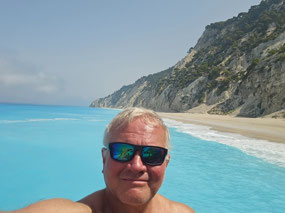
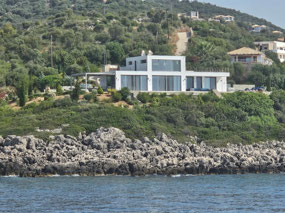
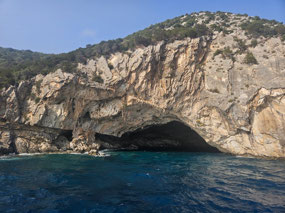
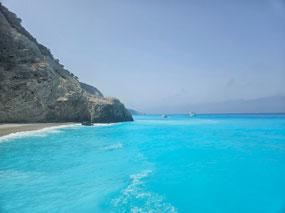
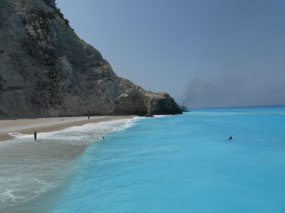

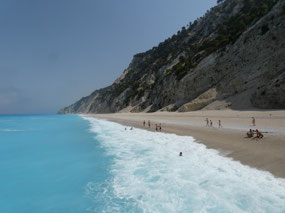
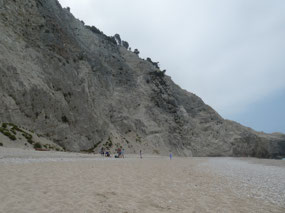
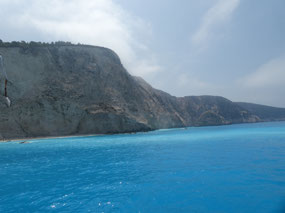
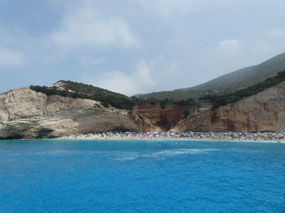
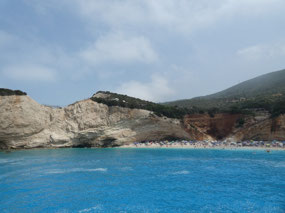
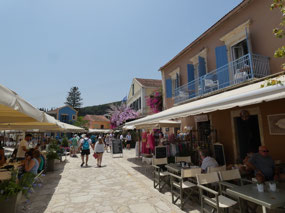
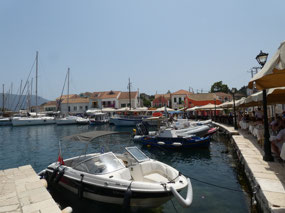
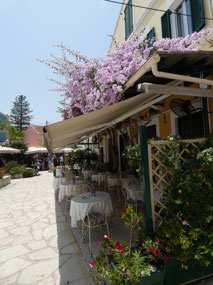
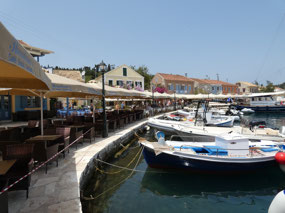
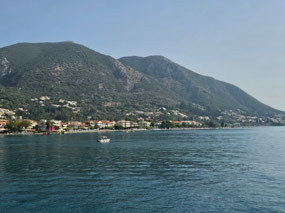
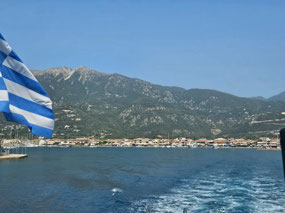
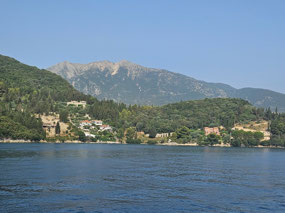
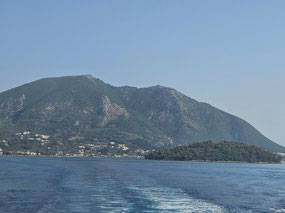
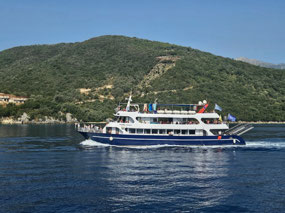
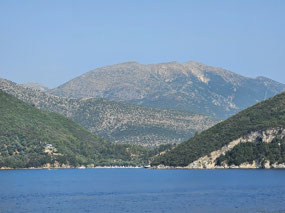
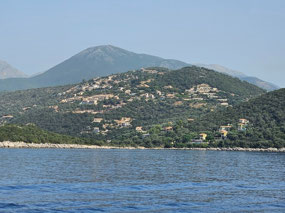
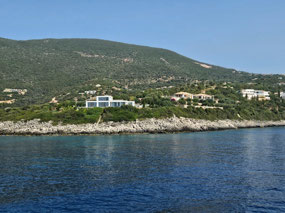
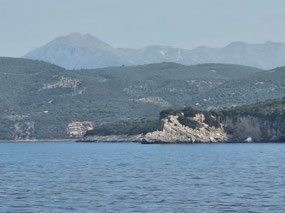
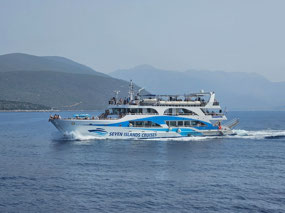
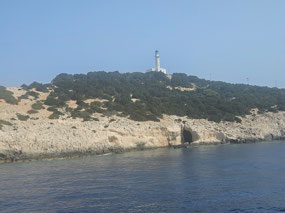
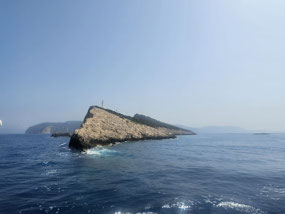
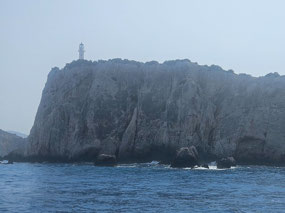
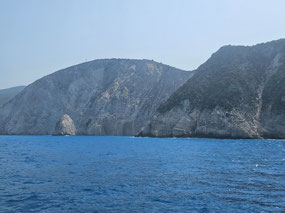
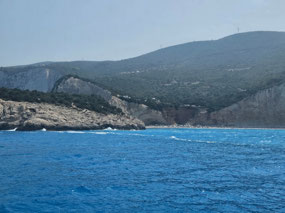
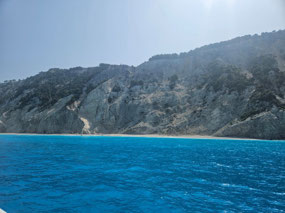
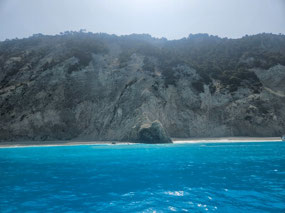
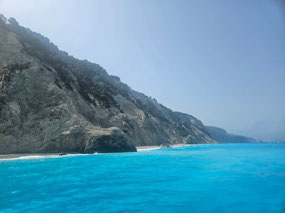
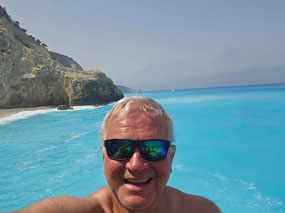
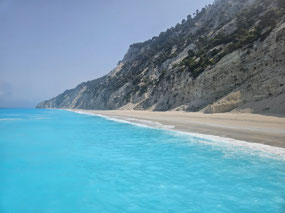
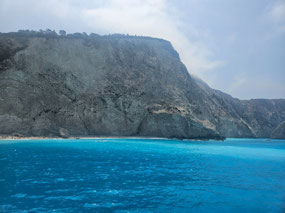
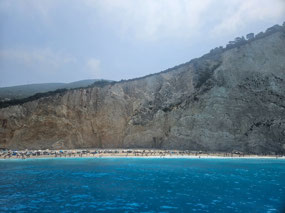
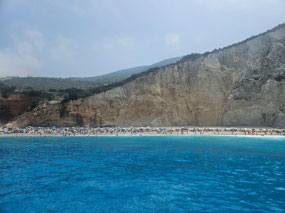
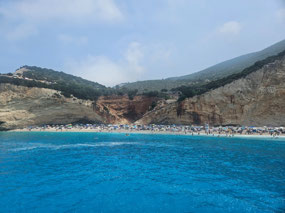
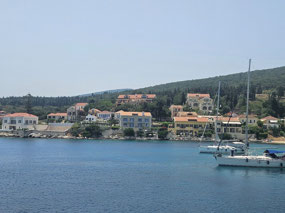
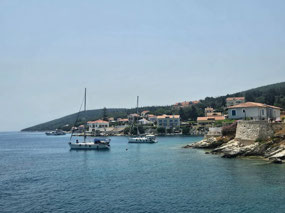
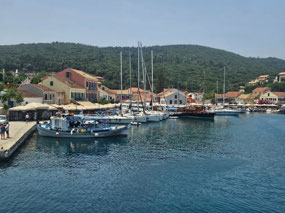
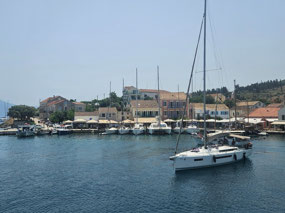
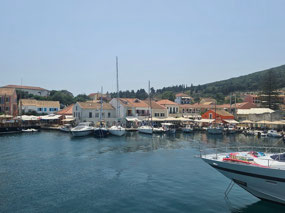
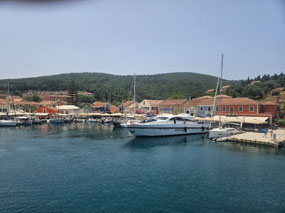
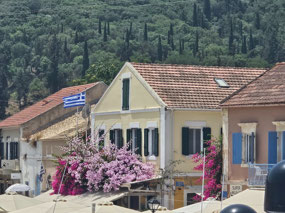
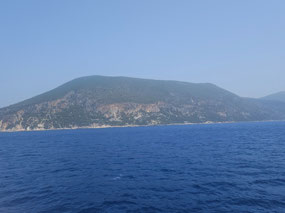
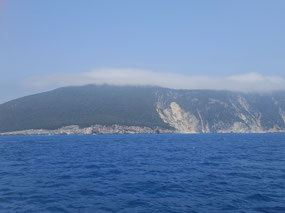
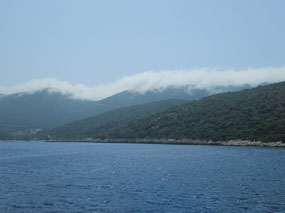
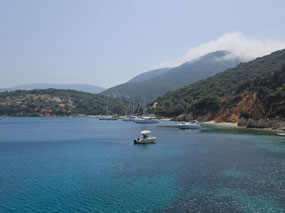
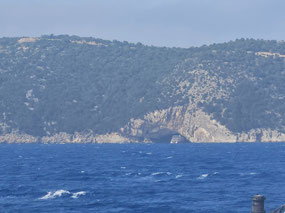
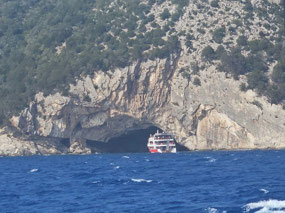
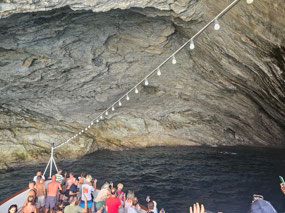
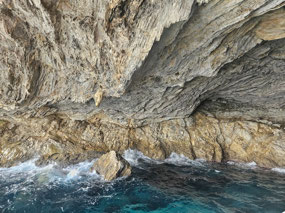
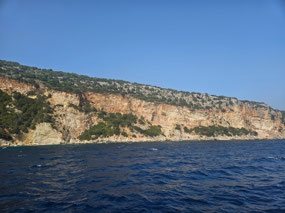
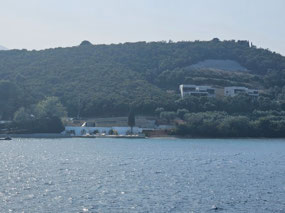
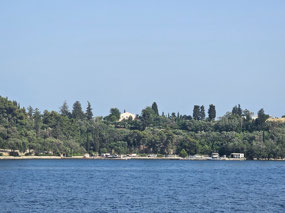
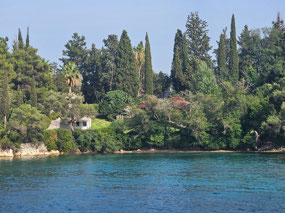
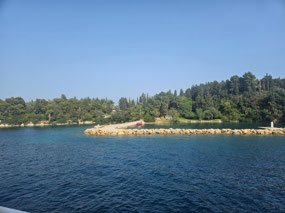
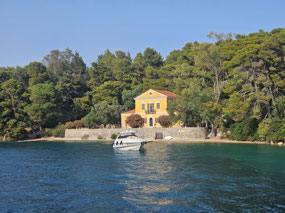
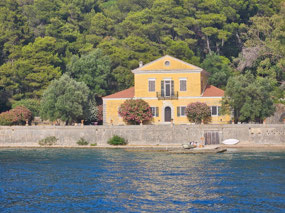
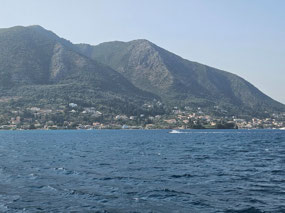
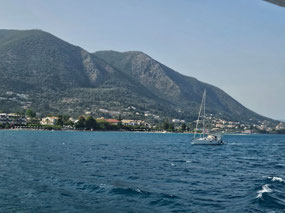
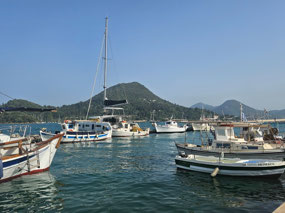
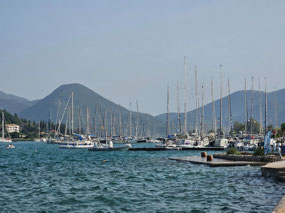
2025-05-23